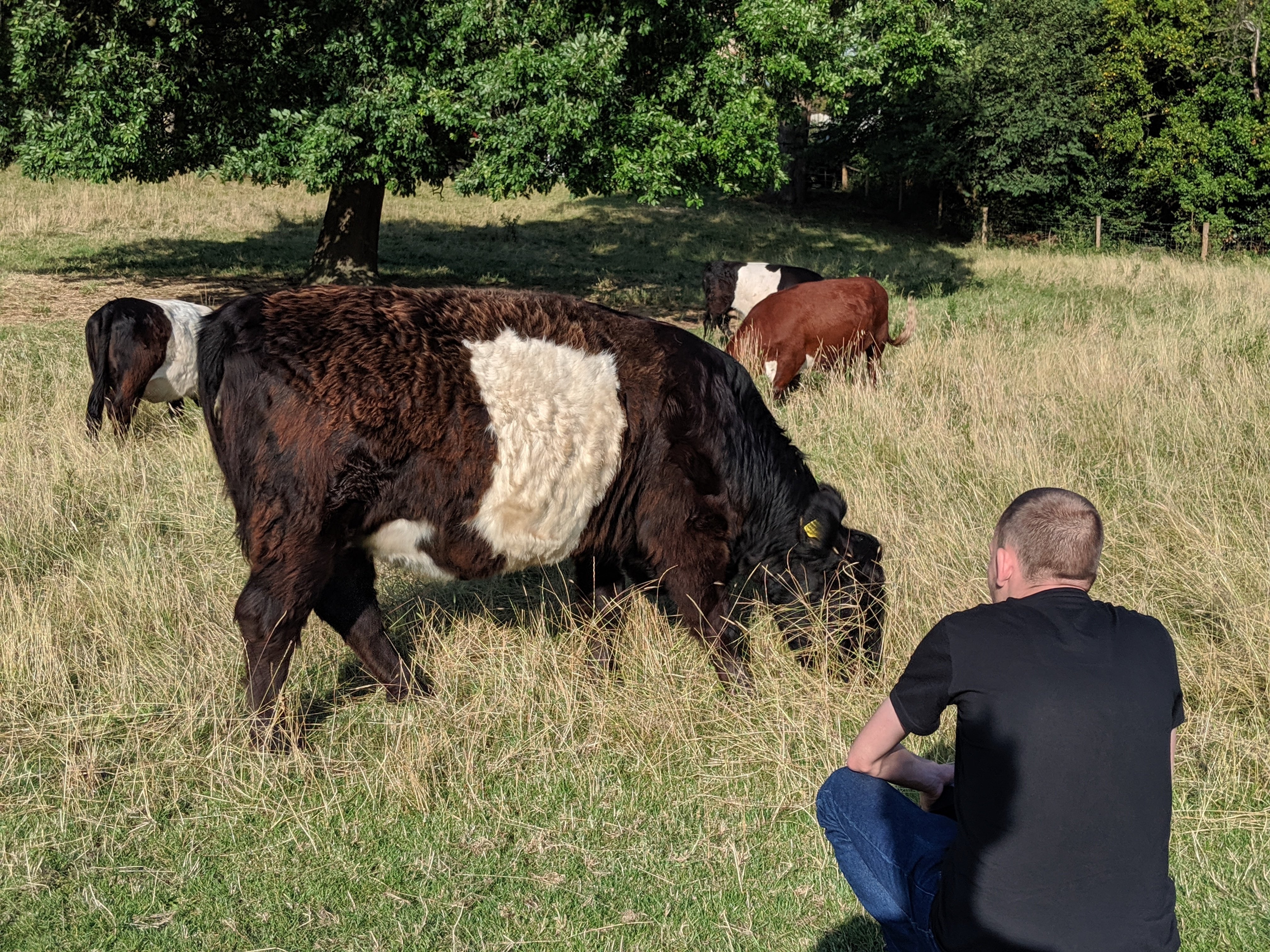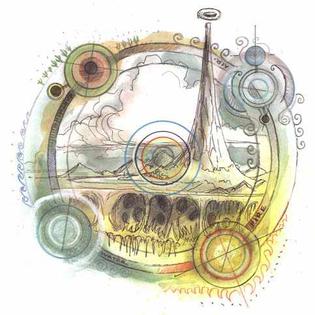It’s really amazing how much damage his loss probably did to the world.
I can’t think of any pro-wildlife “influencers” that would be at his level today, much less wherever he would have reached in the remaining years.
David Attenborough’s narrations for nature docs, maybe? But that’s not really the same as watching a wildlife fanatic like Steve Irwin.
He has a son that seems eager to follow in his footsteps, so maybe he’ll fill that void one day.
But getting that kind of popularity is like being struck by lightning, especially now. He had a very advantageous start on TV (not to belittle how amazing he was).
In the anglosphere maybe, which most of Lemmy seems to represent. I come across countless legends doing the same work but without the same recognition. When Greta Thunberg, who I admire, became big I read an article about all the people around her age that have been doing the same campaigning. They were mostly indigenous people so nobody came along with a TV show for them.
Yes there are so many indigenous cultures (certainly every one I’ve learned about in Canada) that are literally about working together with the earth and in balance with the earth. Steve Irwin was a wonderful person but imagine all the wiped out or nearly wiped out cultures where this was or continues to be literally their way of existing in the world, and they were dismissed for so long as “savages” for their relationship with nature.
I shudder to think that Greta is attributed to Conservation in the same breath as Steve Irwin!
Greta should be at home and in school and preparing to live her life as an adult. If she as an adult became a climate activist and held the Top-7 or Top-10 or Top-20 corporations accountable, sure that would be commendable.
Nothing gets done blaming others and while taking no action against the wrongdoers.
yourselfShe’s 21. she’s been an adult for a few years now. She is still a climate activist and is still holding corporations accountable and she is still commendable.
Wonderful how we don’t have any polluting corporations anymore … wait … it has gotten worse …
The situation is certainly dire. Can you go into more about what Greta has been doing wrong and how laying low until adulthood would’ve helped?
There is strength in numbers. A single person isnt a hero. We dont live in a fantasy. Collective action is better. There are a million different ways to hold corporations accountable including working from within each one.
You don’t think her going to protests is collective action?
I promise I’m not playing dumb - could you offer an idiot’s guide:
- thing one
- thing two
- [thing three] she did wrong
And
- thing one*
- thing two
- [thing three] she should have done instead?
*work inside a corporation to dismantle climate destruction from the inside
Appreciate your time.
it really sounds like you’re angry with the lies fox news has been telling you, while ignoring what was actually happening.
Nothing gets done blaming others and taking no action yourself.
You’re literally complaining that she decided to take action too soon for your taste.
Silly me for pointing out that sensationalism and performance-activism hasnt done anything worth a dime or nickel to reign in the perpetrators of the climate catastrophe.
If Greta or similar persons could get a climate science degree and perhaps a political or law education and work to take down the system from within, perhaps we could stand a chance.
Spray-painting Van Gogh or the Stone Henge isnt solving anything. Neither is sailing around on a yatch around the world helping.
This is why I get so mad when people say “we don’t have an overpopulation problem, we have a resource allocation problem”.
No. There are not supposed to be this many fucking humans. Where the fuck are the animals supposed to live???
We need to return to preindustrial population levels so the animals can too
Wildlife is now only 4% of the mammalian life on the planet, by mass. The rest is livestock and humans. https://www.ecowatch.com/biomass-humans-animals-2571413930.html
Exactly. That’s insane.
Return to monke.
deleted by creator
If you had half as many humans in the world, but they all lived in suburbs, it would be much worse for the environment than having twice as many humans but they all live in cities.
Compare America to India. If Americans lived the way Indians do, the population would be absolutely fine. So if you want to solve overpopulation problems, stop the American style suburbs before you worry about the actual population.
Actual Indian here, please DO NOT live the way Indians live in India. The worst unplanned urban sprawl and urban density and squatting and squalor and slums :-(
If you are referring to the Ancient Civilization of local produce and local distribution and local Kingdom Tithes to the Empire while living in villages and the concentrating political, commercial and military power in the major cities. Education “institutes” in deep forest with no “fees” but labor for classes. Since that type of Civilization did once exist and thrived before being wiped out by repeated invasions and conquerors. Most definitely there were social and technology issues, but the slow pace of development did not destroy the landscape.
Medicine, Technology, Transportation, Global Trade need tempering with ecological ethical and sustainable standards of implementation, research and development.
Yeah, I’m not idolizing the actual conditions of India, just pointing out an exception to what the person above is talking about.
My ideal society would be a solarpunk version of soviet block housing with tons of bike paths and trams and high speed intercity rail. Cars and meat would be banned, but everyone would have gigabit fiber internet and induction stovetops. Also the thermal and sonic insulation would be fantastic
Soviet blocks are definitely better than urban sprawl when the maintenance and facilities are top-notch.
Taking the single issue of Transportation pollution, when India was in lockdown during covid, we had pollution-free skies, and lo-and-behold the regular rains and normal weather patterns not seen for more than 40 or 50 years returned ! Human transport pollution is the worst in India.
One of the first things Indian/foreign companies did was force workers to mandatorily return to office locations which increases transportation pollution by the bazillions as vehicles are needed to shuttle people, materials and maintenance for everything. And all these corporations talk the big talk of how ESG they are.
If we had below 1b global population, the world would’ve been a much better place.
Have you seen how people in the slums of India live? No one wants that life. It is not unreasonable to want a fair standard of living.
Pay attention. https://lemmy.ca/post/23724190/9974658
So you want us to somehow magically have the greenhouse gas emissions of an Indian, but think we can just have a high standard of living by having Soviet-style housing blocks (famous for being bleak and depressing)? That does not seem grounded in reality.
Edit: and meat is one of the few things I can eat. Not giving that up. Humans have eaten meat since before civilization. It’s a clear sign that overpopulation is a major issue that something that humans have done for eons is suddenly a problem.
For eons, most humans died between the ages of 0 and 1. Before we had modern medicine, we just accepted it and moved on. In many cultures, you wouldn’t bother to name a kid until its first or second birthday, to make the grieving process easier. Now, most babies don’t die. Cows don’t have to die for us either.
We can save more infants, so that means no more meat. That is some non sequitor.
You weren’t paying attention to the point of what I said, were you?
Sure but all those humans need an insane amount of farmland that dwarfs the amount of land they need for housing. And that’s ignoring meat consumption.
With a huge population, beef consumption is insane and is destroying the world.
With a small population, it isn’t a big deal.
That amount of farmland is a lot less if you’re not raising livestock and throwing out perfectly good food because it isn’t profitable. A vegan socialist society has a much higher population ceiling than a carnist capitalist society.
That’s false. We have plenty of real world examples that meat supports much much larger population than plant foods.
Yeah, in a tribal or medieval society. The math is very different in an industrialised society. The point where the equation really starts changing is when there isn’t enough space for all the animals to pasture, so instead of eating grass, the livestock are fed energy dense produce like corn grown on a different farm. Get rid of the cows and feed the corn to the people, and you’ll use a tiny fraction of the amount of land, water, and energy.
Since when Scotland and New Zealand are tribal and medieval societies? Or maybe France and Italy are tribal and medieval? There’s never a point when growing crops is better than growing meat. That’s a myth peddled by the sugar industry.
Australia has roughly the same amount of land as America, and a tenth the population. The Australian meat industry is able to be less subsidized than the American meat industry because of all the extra land. If you want to talk about overpopulation, Australia is one of the last places you should be looking. It has the fourth lowest population density in the world. In America, farmers need to grow corn to feed the cows, and they need extra money from the government to afford to do that. Australia can economically afford to eat meat, but America can’t. And India sure as hell can’t.
It’s amazing how many people I talk to about overpopulation simply that we get 50% of the land (or more!) and the rest of all other animals get to fight over the rest.
Why? Who decided that there aren’t supposed to be this many humans? We just need to accept that humans exist and work with that. Unless your solution is genocide and mass sterelization. And historically, richer nations paradoxically breed less, which is pretty unnatural IMO but seems like the solution to overpopulation: feed and educate.
The Earth has carrying capacity limits. I think we’re probably over that, temporarily, mostly because of fossil fuels. We turn fossil fuels into energy and food, degrading that environment and decreasing the Earth’s carrying capacity at the same time. It’s like we’re playing a game of Jinga to push population higher at the expense of our foundation.
What happens when rich nations become poorer? The world’s current predominant economic system cannot function without growth. What will the elites do to maintain the status quo? Perhaps push for banning abortion, contraceptives, and taking away women’s rights and autonomy?
We need to return to preindustrial population levels so the animals can too.
What exactly are you proposing?
I don’t have all the answers, it’s like saying I want candy and not knowing how to make it.
That said, maybe something like a tax on children, free contraceptives, free sterilization, free abortion. Pay people when they reach 45 if they don’t have kids. Robot caregivers for elder care in a decreasing population.
Better sex-ed in schools. A philosophy change that the best thing you can leave behind on this planet is nothing.
I propose more cool video games.
Here, I have a couple examples to kind of, illustrate why, despite the common sentiment, antinatalism, and malthusianism, inherently, like, just straight up, don’t make any sense. This is all based on back of the napkin math that I did a while ago, and I don’t want to redo the numbers, so take it with a grain of salt maybe, but, yeah.
Okay, so, not really taking into account consumption or supply chain, which are major factors, you could fit the entire population of earth in one city the size of about one and a quarter rhode islands, if you had the population density of kowloon. Now, kowloon has retroactively been shat on as having a low quality standard of living, which is partially true, there were leaks everywhere, it was run by the mob, yadda yadda, but there’s nothing inherently problematic with that level of density, there. You could easily expand that to, say, two rhode islands, or three, right, and that would cover an insanely small portion of the earth’s surface while also being more than enough for everyone to live.
On the other hand, if you divided up the earth based on only habitable zones and arable land, you’d get about 2.5 acres per person, which I think also accounts for the elderly and children. To me, that sounds like probably 2.5x more than I would ever need in a lifetime, especially once we kind of tally up all the savings that we can get at scale, at mass production, and then maybe take costs for transportation.
We also, never, never ever take into account the amount of land management which was being done by the various natives of all their lands before colonialism kind of came in and fucked everything up. We have this conception of nature as being some kind of like, inherent good entity that humans can only ever destroy with their presence. A kind of untouched garden of eden that we should basically never touch. As being like, inherently sacred, or having some inherent value, even, to the point where we anthropomorphize it. “Mother nature”. We have this view of humans as also being completely separate from nature, as being an aberration, rather than being a part of it. I think these are both mistakes. We have to view humans as being a part of nature, and we have to start viewing nature as existing everywhere, rather than just being something that you minorly interface with when you go for a hike. Our built environment is part of nature, our decision to plant exclusively male trees that will give off a shit ton of pollen which covers all the windows and makes everything super shitty all spring so we don’t have fruit, that’s a part of nature. So are the raccoons and possums and stray cats and dogs and pigeons and weeds and other things which we see as being invasive but also simultaneously as having no real habitat anymore.
The real solution, I think, is only going to come about when humans collectively start to conceptualize and take accountability for what they go around and do, rather than just sort of, pawning off all responsibility for everything, and cooking up some apocalyptic reality where it’d just be better off if we didn’t exist at all. The genie is out of the bottle. Even to conceptualize of us as being “the problem”, as though there is a singular kind of problem, is a kind of anthropocentrism, and a kind of anthropomorphizing of nature.
I also assume I don’t need to really discuss how like, the idea that we’re currently doing everything in the most efficient way, is a little bit overconfident, and takes everything at a kind of, unchanging face value. As though we exist in the long arc of history with a kind of inevitability, rather than a random happenstance.
“Our wildlife”
It’s not ours, just like the planet isn’t.
The flag I shoved into this penguin says otherwise.
Your flag might spell “otherwise” but this piece of evidence below says something else!

Son of a gun, he got em
Careful. You start shoving flags into living things and who knows where it will end up?
it is the same thing as saying my community/our community/my class/my girl/boy friend/ my favourite cafe/my dad etc. Does not necessarily mean you own it, just a short hand way of expressing a more abstract form of relationship than physically owning something.
Cold uncaring universe MFers realizing we are not separate from the universe and are, in fact, the universe itself observing, bettering, and caring about itself.
Philosophy and Science have always had an impact and influence on each other.
I miss Steve
I wish I could get the joy out of picking up an animal turd that Steve Irwin had. Every time I walk the dogs.
Crikey, she’s a beaut.
Try adding Old Bay, or some Steak Seasoning.
That doesn’t make it any less squishy.
I believe the term you’re looking for is “al dente”
I very rarely wish death on anyone but myself. I guess we’re equals right now.
🤣 I’m just here to help!
Thank you both for being.
Aw man, you too!
Evolution just needs to kick the rest of the animals into high gear and do some defcon 1 shit, like making seaguls venomous and thirsty for human blood, or inventing funnel-webbed Taipans that can fly and open doors. New airborne bacteria that feeds exclusively on the human optic nerve, and daffodil pollen that causes category 5 cytokine storms.
Level the fucking playing field.
plastic eating bacteria seems to be on its way atleast
Yeah sorry, ill have to put the project on hold. My laptops got the clap again.
IT: have you sprayed the latest antibacterial spray on the laptop?
There’s already enough suffering in the world, no need to create more! the parts of our brain that gave us the ability to shape our environment outpaced the ones with the old tribal way of thinking we needed to survive.
But since we shape our own environment, we are guest and shouldn’t be everywhere on the planet.
Fortunately, there’s enormous swaths of the planet that are totally inhospitable to human life.
Unfortunately, we’ve managed to deposit all sorts of toxic waste from the depths of the ocean to the hottest corners of the desert to the peaks of mountains.
Those places are also inhospitable to most life, period. Just because the TD habitable to humans doesn’t make it ours, either.
Humanity’s ability to repair and control is far from being able to keep up with its destructive power
I wonder if he was vegan
Eating meat is very much a part of nature, if you’re implying he would be a hypocrite for eating meat
There’s nothing natural about our food production, specially meat production.
What is natural? There’s animals that dig into other animals brains and eat them slowly. There’s animals that paralyze their victims and eat them slowly. There’s parasites that infect their host and force them to get eaten by controlling them and removing their fear center. There’s animals that eat their own young. There animals that only eat the young of others.
This notion that nature isn’t cruel and unforgiving is just a fairytale.
The amazing thing about humans is that we can actually feel compassion for others, even other species and strive to reduce their suffering as much as possible. I’m really getting tired of people being so negative all the damn time.
Our food production needs to do better and be better but it will only do so because of us, not because we “listen to nature” or whether else people love to spew out trying to sound enlightened.
What is natural?
There are certain ecological balances that develop over time, as species fill individual niches and create symbiotic bonds. The capacity for the given biome to support life is predicated on a certain cyclical exchange. And when that cycle is broken, you typically see a die-off caused by the imbalances.
This notion that nature isn’t cruel and unforgiving is just a fairytale.
The question isn’t of cruelty but sustainability. The mouse eats the corn. The snake eats the mouse. The bird eats the snake. The parasite eats the bird. The corn eats the corpses.
But if you go through with a weed wacker and kill all the snakes, you get population spikes on one end of the food chain and collapses on others, in a way that ultimately reduces the amount of life the area can support.
We saw this across the American Great Plains with the extermination of buffaloes and passenger pigeons. What was once lush and bountiful became barren and inhospitable, as industrial scale destruction of natural resources rendered territory uninhabitable. Reckless industrial development produces waste faster than the natural ecological conditions can process it. And this same development siphons off the natural bounty faster than it can be replaced.
Our food production needs to do better and be better but it will only do so because of us, not because we “listen to nature”
If we do not understand why certain natural cycles exist or how certain minerals and molecules are naturally derived and regenerated or what energy sources are available and at what rates, we risk exhausting the existing biological landscape and destroying the capacity for a particular piece of territory to sustain new life in future generations.
This is as simple as looking at the Great Lakes or the Ogallala Aquifer or the Mississippi River and asking “Is there going to be enough water in these places in another 100 years to maintain our productive rate of agricultural development?” And at the current rate we’re exhausting these resources, the answer is no.
If we hadn’t brought in so many thirsty commercial scale animal and plant species or attempted to generate such large surpluses that we could export them overseas at enormous profits or raised the temperature of the Earth such that we evaporated off too much surface water, we would not be in this situation.
trying to sound enlightened
You don’t need to be a guru to look at the Earth and look at Mars, then say to yourself “Maybe we keep the Earth-style ecology going a little longer”.
Well put.
I was directly responding to the previous commenter saying that it’s natural to hunt and eat. Our current system of industrial farming of animals is inhumane for both animals and farmers. Nature might be unforgiving and metal, but we have brought the unnecessary torture of sentient animals to unholy levels.
That’s what I meant with my comment.
Plenty of animals kill just for fun and will torture their prey for hours. And just because something is inhumane, doesn’t make it unnatural. If anything, it’s humane practices that are unnatural.
No other species has built killing factories that torture and kill billions of animals per day. It’s not even comparable.
I use the word “humane” in the sense of “you would mot subject humans to it”.
My brother in Christ I take it you haven’t met ants and chimpanzees have you?
I was directly responding to the previous commenter saying that it’s natural to hunt and eat.
I didn’t say about hunting either, as it isn’t relevant to context of Irwin’s quote
it’s not torture.
Making something sit in one spot in a cage for their entire life to the point where they couldn’t move even if they wanted to isn’t torture?
Do you also think solitary confinement in prison is natural?
in torture, the pain and discomfort is the point. prison is an excellent example of torture. by contrast, I think everyone agrees that we would prefer if no pain or discomfort were part of farming animals. this is probably especially true for the people actually doing the farming and slaughtering. in this case, the pain and discomfort are only incidental. it’s not torture.
I never made a comment about that?
except that it happens entirely within the natural world. it’s not supernatural.
Unnatural doesn’t mean supernatural. Words have meanings. Do you also go around saying synthetic materials are aktshually natural?
synthetics are natural. they’re not supernatural.
words do have meanings. what is the opposite of supernatural?
Eating meat is very much a part of nature
Trying to explain this to the guy getting chewed on by a tiger, but he’s too busy screaming and thrashing and bleeding everywhere.
What?
Tigers eat meat. Its part of nature.
But people don’t like being eaten. So they complain about tigers and try to get rid of them.
Are you sure you’re replying to the right comment? I don’t see how this is relevant to Steve Irwin
Man, I wish I was still able to do drugs like you do. Fun times.
No. His research showed that growing veggies reduces bio diversity of land. Eating a cow is better than eating rice.
…but those cows eat plants, and way more than we do, so wouldn’t that just amplify the problem?
They eat plants we cannot eat in the areas we cannot plant any human edible plants.
This logic checks out, however I do wonder if that’s actually how it happens in practice. As in, what percentage of their feed is grown somewhere that we absolutely can’t grow human food.
One good example is New Zealand. They only have about 2% of arable land and their population was always very small. Even when Europeans started to settle on the islands, overall population didn’t grow much. But once Europeans brought grazing animals, NZ population has exploded! Now the islands can support a lot more humans, plus they have enough excess they export to buy plant food they don’t grow.
Another example is Scotland. They have 10% of arable land and their population is less than 10% of total UK population. Yet they supply 55% of all beef in the UK and 63% of all lamb. And they still export some meat to EU even after Brexit, even though these exports have fallen drammatically. If you compare the satellite view of Scotland and England, you will see that Scotland is a lot more forests and wild areas, while England is just one large wheat and rape field with a bunch of large cities here and there.
Then there are Alps, which are known for high quality dairy products. Fuck all grows in the mountains so high (in terms of human edible food), yet there are many cows freely grazing and co-existing peacefully with the nature. Just like their wild ancestors did.
P.S. Fun fact - many public parks in UK cities have cattle proof entrances like the one you can see here in Cambridge. Because cows have no issues eating grass which grows in the parks, so you can use this land not only to enjoy your weekend or lunch break, but also to grow food. Here’s one in London. And not just in any random part of London, but it’s in Richmond, where old rich twats live.
And here’s a photo of my brother looking at cows in Richmond. Why pay to mow the grass and for cow feed when you can simply let them graze in a park? Win-win-win!

Please don’t present this as the norm for animal agriculture, as it’s disingenuous at best. The rare instances where this occurs are far outweighed by the habitable land use that animal agriculture accounts for globally. And even in the countries you call out, such as New Zealand, factory farming is on the rise, and pigs are almost exclusively factory farmed.

cattle eat somewhere north of 90% grazed material or so-called “crop seconds” which are parts of plants that people can’t or won’t eat. so, for cattle at least, it is true.
“Crop residues” or “crop seconds” only account for about a quarter of global animal feed, and the grain fed to cattle in the US alone could feed a billion people.
https://lemmy.zip/comment/11115828
according to the research on water use, hardly any grain goes to cattle first.
Calorie supply is irrelevant. The main source of calories today is sugar. People in developed countries like the US get 14% of their daily calorie intake from sugar, some countries like Brazil get over 20% from sugar. That’s way above the recommended 5%.
Another issue with your logic is that land used for grazing can and is simultaneously used for other needs, and it also supports natural bio diversity. Crop land is pretty much a dead land.
The chart also considers protein supply for this reason.
It’s extremely rare that grazing land is used for anything else. In fact, over half of tropical deforestation is done to create pasture land for cattle.
https://onetreeplanted.org/blogs/stories/deforestation-causes
I see grazing land used for other things at the same time every day. Most countries don’t farm like US does.
His research showed that growing veggies reduces bio diversity of land
What an absolute load of shit. How dare you try to use a great man’s name to spread misinformation.
Source?
deleted by creator
Thanks, but I believed you that he said it, I was asking for any sort of source to back it up. The argument he makes in that interview is terrible and should in no way inform your opinion unless you have actual evidence to back it up.
I’ve described some real world examples in a different comment https://lemmy.world/comment/10805817
You talk about the forests of scotland, the vast majority of these are monoculture plantations with absolutely terrible biodiversity. By far the largest producers of meat in scotland are factory farms where animals are fed using things like soy, only a minority of livestock entering the food market are reared anything like sustainably.
There is nowhere near enough land to grass feed the amount of ruminants that we consume, so feed crops need to be grown or imported.
You’re just plain wrong.
the vast majority of the soy fed to animals is the byproduct of pressing soybeans for oil.
I’m open to any answer in this; but I think he misses the point here that every animal in itself would need a field of grass in food volume to survive.
No matter how you put it, it seems to me that adding an extra animal to the equation requires more food/water/space, not less.
When you’re adding a cow to an existing wild field, the field and its inhabitants don’t disappear. When you start planting crops in that field, you destroy the whole associated ecosystem.
Meat production is much, much more agressive on the biodiversity of land than veggies with comparable nutritional value. Lots of research shows that. Not only is the area needed to farm animals immense, but then you also need to grow feed crops like soy and corn to feed the animals. Both are major sources of deforestation. You are absolutely wrong.
You are absolutely wrong.
oof.
the vast majority of the soy fed to animals is the industrial waste from soybean oil production. it’s a conservation of resources, not an expenditure
That’s not true. We’re way past that point.
oh? so the owidx chart that shows 70% of all soy by weight being fed to animals as “soy cake” or “soy meal” is outdated? I would happily believe that if you present some evidence.
My point is that at the scale we’re doing it, this is not a waste product. It’s just a product like the oil is a product. We like calling things a waste product to make us feel better about our exploitative behaviours. Like how we call leather a waste product of the dairy industry. It’s not waste, it’s just another product.
using a byproduct that would otherwise go to waste is good
No, it’s not. That’s a myth.
Absolute Legend.
Rest in peace.
Love it to (your) death, Steve.
Everyone in here acting like farming and livestock hasn’t been the cornerstone of human population since 400k years ago…
But it was not filmed.
Yeah, right. As if the Flintstones documentary wasn’t on TV for multiple seasons.
It hasn’t. Livestock farming started about 10,000 years ago (give or take 1000 years), although this keeps getting refined with DNA studies and I’m not sure what the consensus is. But that also doesn’t mean it’s necessary in the modern era with modern agricultural practices.
https://www.alimentarium.org/en/fact-sheet/history-pasture-farming
Agriculture began in fits and starts, but the first permanent farms we knew of are even newer- taro farms in New Guinea about 9000 years ago.
Also, homo sapiens have only been around for less than 300,000 years.
10k years is longer than recorded history. That doesn’t change anything that I said.
Thank you for the corrections though.
It doesn’t change your claim that it’s been something we’ve been doing for thousands of years, but like I said- it isn’t necessary in the modern era with modern agricultural practices.
It is though. Without farming we wouldn’t even have a modern era.
What was done in the past is not really relevant to what we are able to achieve now.
In the year 2024, we can feed the world without farming animals, so the main argument to keep doing so is tradition.
We do not own her, and she does not own us. Mother Earth made us out of spite, to be constantly challenged, until we are let loose on an unsuspecting universe. Her peers scorned her, so she has given us one trial after another to make us as resilient, and eternal, as she is. Soon we will leave our cradle carrying our mother’s wisdom, and wrath, with us. Woe to all that seek to oppose us, for we have been tempered in a deathworld crucible. Blessings to all that are neutral, or join in our crude attempts to make a better galaxy and universe.
Oh and those of us that stay behind shall finally tame our mother, and make her into her final form of a true Gaia planet.
Humanity fuck yeah
















